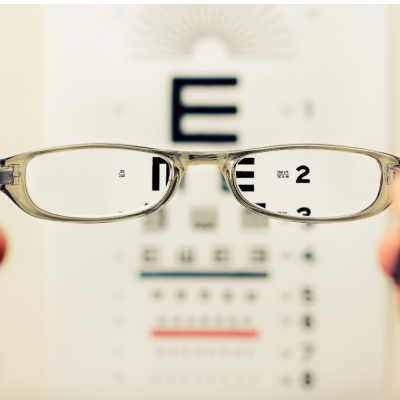Neurological symptoms
Common Neurological symptoms
- Headaches
- Back pain and Neck pain
- Seizures
- Muscle Weakness
- Impaired Sensation
- Dizziness
- Tremors
- Slurred Speech
- Cognitive Impairment
- Visual disturbances
- Imbalance and walking difficulty
- Urinary disturbances
Headaches
Headache is one of the most common symptoms of neurological disorders. Pain in any part of the head, including the scalp, upper neck, face, and interior of the head all can be interpreted by the patient as headache. It interferes with the ability to perform day to day work and reduce sleep quality. Some people have frequent headaches.
Some common causes of headaches include:
- Tension headache
- Migraine
- Post Head injury
- Brain tumor
- Bleeding in the brain
- Eye problems
- Sinusitis
- Ear infection
- Jaw bone fractures or dislocation
- Neuralgias
When headache is recurrent and /or associated with visual disturbances, weakness of the body parts, imbalance, giddiness, excessive vomiting or cognitive disturbances one need to careful and urgent medical attention is required.


Back pain and Neck pain
Another common complaint in neuro practice. This is most probably due to degeneration of the spine with or without associated past injury to the spine. The pain may be restricting movements of the neck and back. At times the pain may be spreading to one hand or leg associated with numbness and an electric shock-like situation on the extremities.
- Disc prolapse is the most common cause
- Trauma
- Tuberculosis
- Structural deformity.
- Tumors of the spine
Seizures
A seizure is a sudden electrical disturbance in the brain. It can cause changes in behavior, feelings, or movements with or without change in level of consciousness. Seizure may be a symptom which denotes a serious underlying neurological illness.
Having recurrent seizures may be an indicator of epilepsy. Conditions that can cause seizures include:
- Epilepsy
- Stroke
- Brain tumor
- Head trauma
- Brain infection
- Metabolic encephalopathies
Seizure needs immediate medical attention and often consultation with Neuro specialist.


Muscle Weakness
Muscle weakness is when your muscles feel powerless when trying to put them into action. It may also be described as reduced muscle strength. Weakness may occur when you’re tired or when overused or after an intense workout. However, persistent muscle weakness may be a neurological symptom of:
- Stroke
- Multiple sclerosis (MS)
- Amyotrophic lateral sclerosis (ALS)
- Herniated disk
- Brain or spine tumor
- After an injury to the brain or spine
- Peripheral neuropathy
- Chronic fatigue syndrome
Impaired Sensation
Impaired sensation is a feeling of numbness or loss of sensation in one or more body parts. Sometimes this is due to a physical injury but it can be a neurological symptom as well. Neurological conditions that may cause impaired sensation include:
- Head and spine injury
- Brain tumors
- Stroke
- Spinal tumors
- Disc prolapse
- Neuropathies
- Entrapment syndrome


Dizziness
Dizziness is used to describe sensations of faintness, weakness, or unsteadiness. It can also create a false sense of motion or spinning, which is a sign of vertigo. Dizziness is a common neurological symptom but it may be caused by a condition not related to the nervous system. Possible causes of dizziness include:
- Migraine
- Middle ear problems
- Inner ear problems
- Motion sickness
- Side effects of medication
- Problems of the brain
Tremors
A Tremor is a rhythmical movement of an arm, leg, or another body part. They may come and go throughout the day and become more violent or change in speed over time. Possible neurological causes of tremor include:
- Stroke
- Multiple sclerosis
- Parkinson’s disease
- Brain degenerative conditions
- Traumatic brain injury
- Metabolic causes


Slurred Speech
Slurred speech is a neurological symptom that can include mumbling, poor pronunciation, or changes in speed or rhythm while someone is talking. Slurred speech may be caused by alcohol or drug intoxication, but it also may be a neurological symptom of:
- Amyotrophic lateral sclerosis (ALS)
- Multiple sclerosis
- Bell’s palsy
- Cerebral palsy
- Muscular dystrophy
- Parkinson’s disease
Cognitive Impairment
Cognitive impairment describes the decline of mental capabilities like thinking, memory, judgment, and language. Cognitive decline happens gradually with age, but it can also be a symptom of a neurological condition such as:
- Dementia (including Alzheimer’s disease)
- Depression or psychiatric disorders
- Head injury
- Brain tumor


Visual disturbances
Some vision problems are neurological symptoms rather than problems with the eyes. Symptoms like blurred vision, light sensitivity, reduced vision, or spotty vision can be associated with neurological problems like:
- Migraine
- Multiple sclerosis
- Brain tumor
- Optic neuropathy
- Parkinson’s disease
- Alzheimer’s disease
Imbalance and walking difficulty
One of the common causes in old age where the patient finds it difficult to walk steadily or there will be slowness of gait. May or may not be associated with imbalance and a tendency to fall on either side. The causes are many and have to be evaluated thoroughly. Prompt medical assessment is required for all age groups as it can be serious. Some common causes are:
- Stroke
- Cerebellar disorders
- Inner ear disorders
- Parkinsonism
- Normal Pressure hydrocephalus
- Dementia
- Brain tumors


Urinary disturbances
Neurogenic causes of urinary disturbances need proper assessment and immediate attention. It may be an early sign of a neurological disorder and if identified promptly patient can be relieved of symptoms completely. Similar problems can be also due to local bladder problems. Hence a thorough examination and prompt investigation probing into the various causes needs to be done.
Common neurological causes are:
- Stroke
- Normal pressure hydrocephalus
- Brain and spinal cord tumors
- Spinal cord compression
- Syringomyelia
- Disc prolapse
- Trauma to the spine
